Hizballah - More military than militia
Day 19: Hizballah-Isreali War

As the shells fall around them, Hizbullah (sic) men await the Israelis
Ghaith Abdul-Ahad, south of Tyre
Saturday July 29, 2006 - The Guardian
Inside a well-furnished apartment in a village on the outskirts of Tyre, with shelves of books piled from floor to ceiling, a black turbaned cleric and three men sit sipping bitter coffee. By the door is a pile of Kalashnikovs and ammunition boxes; handguns are tucked into the men's trousers. The four are Hizbullah fighters, waiting for the Israelis.
"Patience is our main virtue, we can wait for days, weeks, months before we attack. The Israelis are always impatient in battle and in strategy," says the cleric, Sayed Ali, who claims to be a descendant of the prophet. "I know them very well."
As if to make his point, the sound of Israeli shells blasting the surrounding hills shakes the door and shutters every few minutes. Ali does know the Israelis. He started fighting them at the age of 17 when they invaded Lebanon in 1982. Three years later he was arrested with two of his comrades and spent a few months in an Israeli prison. Within weeks of his release he was fighting them again.That's what he did for the next six years.
For the last five years he has been finishing his theology studies in Tehran. A month ago, he was asked by Hizbullah to return to southern Lebanon. He arrived a week before the fighting began.Standing at the window, he points to the banana plantations between us and the blue Mediterranean. "I have fought for years in these groves. We used to sit and wait for them [the Israelis] to make a move and then we would hit. They always moved too quickly, too soon."All over the hills of south Lebanon hundreds of men like Sayed Ali and his comrades are waiting - some in bunkers, some in farm houses - for the Israeli troops to arrive. Sayed Ali and his men spend most of their time in the building where his apartment is, moving only at night.
"We stay put and we don't move till we get our orders, and this is why we are not like any other militia. A militiaman will fire whenever he likes at whatever he likes," explains one of the men, who says he has been involved in firing Katyusha rockets into northern Israel. "We have specific orders. Even when we fire rockets we know when and where [to fire] and each of the men manning the launchers runs to a specific hiding place after firing the rockets."He says Hizbullah fighters expect the site of a rocket launch to be hit by an Israeli airstrike or shell within 10 to 15 minutes.Another of the men, who says he is Sayed Ali's brother, explains how Hizbullah teaches its fighters patience: "During our training we spend days in empty buildings without talking to anyone or doing anything. They tell me go and sit in that building, and I go and sit there and wait."
According to Ali, Hizbullah operates as "a state within the state", with its own hospitals, social organisations and social security system. "But we are also an Islamic resistance movement, an indoctrinated army," he adds. "I would go and knock the door at someone and say we need $50,000, he would give me [that] because they trust us."The fighting force of the organisation is divided into two: the "active" group, whose task is to serve in Hizbullah, and the reserve, or Ta'abi'a, as it is known in Arabic. The active fighters get monthly pay. The reserves are called on only in time of war, and receive bonuses but no regular pay. A third section, the Ansar, comprises people who support or are supported by the organisation.
Ali, the commander of Hizbullah in his village, and his men are part of the active force, and their orders are to wait for further orders. "Hizbullah hasn't even mobilised all its active fighters, and the Israelis are calling their reserve units," he said.Hizbullah prides itself on its secretiveness and discipline. "We don't take anyone who knocks at our door and says 'I want to join'. We raise our fighters. We take them when they are young kids and raise them to become Hizbullah fighters. Every fighter we have believes that the ultimate form of being is martyrdom." The three men nod their assent.
Shia symbols and mythology play a big role in the ideology of Hizbullah, especially the tragedy of Imam Hussein, the grandson of the prophet who in the 7th century led a few hundred men against the well-organised army of the caliph in Damascus. He was slain in Karbala, and Shia around the world commemorate these events in Ashura.
"Every one of those fighters is a true believer, he has been not only trained to use guns and weapons but [indoctrinated] in the Shia faith and the Husseini beliefs," Ali says.He and his fellow fighters have been preparing for the latest conflict with the Israelis for years and he acknowledges the support received from Iran."When we defeated them in 2000 we did that with [Katyusha] rockets. We had six years to prepare for this day - the Americans are sending laser-guided missiles to the Israelis, what's wrong if the Iranians help us? When the Syrians were here we would get stuff through their supply lines, now it's more difficult."
The TV is blaring patriotic songs and pictures of destroyed bridges, houses and buildings. The men are feeling confident - only a day earlier the Israelis suffered heavy casualties in the village of Bint Jbeil."Our strategy is to hit the commandos and the Golani units like we did in Bint Jbeil," Ali says. "Those are their best units. If they can't do anything, the morale of the reserve units will sink."For Ali and his comrades, the latest conflict is a war of survival not only for Hizbullah but for the whole Shia community. It is not only as a war with Israel, their enemy for decades, but also with the Sunni community. Saudi Arabia, Jordan and Egypt have all expressed fears of Iranian domination over the Middle East.
"If Israel comes out victorious from this conflict, this will be a victory for the Sunnis and they will take the Shia community back in history dozens of years to the time when we were only allowed to work as garbage collectors in this country. The Shia will all die before letting this happen again."He says that even if the international community calls on Hizbullah to disarm as part of a peace deal, he and his men will not lay down their arms. "This war is episode two in disarming Hizbullah. First they tried to do it through the Lebanese government and the UN. When they failed, the Americans asked the Israelis to do the job."
Despite Israel's claims to have inflicted heavy losses on Hizbullah, Ali insists his side is in a strong position. "Things are going very well now, whatever happens we are winning. If they keep bombing us we will stay in the shelters, and with each bomb more people support the resistance. If they invade they will repeat the miserable fate they had in 1982, and if they hold one square foot they will give the Islamic resistance all the legitimacy. If they want to kill Hizbullah they have to kill every Shia in the south of Lebanon."
And even when the battle with the Israelis is over, he adds menacingly, Hizbullah will have other battles to fight. "The real battle is after the end of this war. We will have to settle score with the Lebanese politicians. We also have the best security and intelligence apparatus in this country, and we can reach any of those people who are speaking against us now. Let's finish with the Israelis and then we will settle scores later."


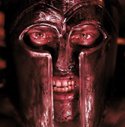


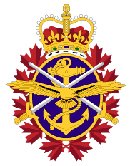







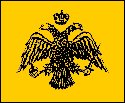






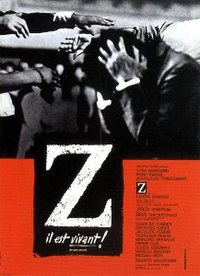
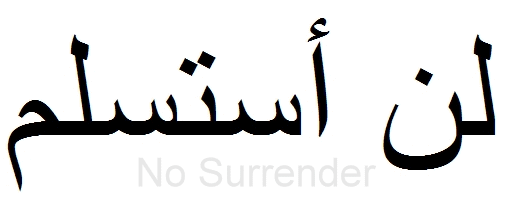

0 Comments:
Post a Comment
<< Home